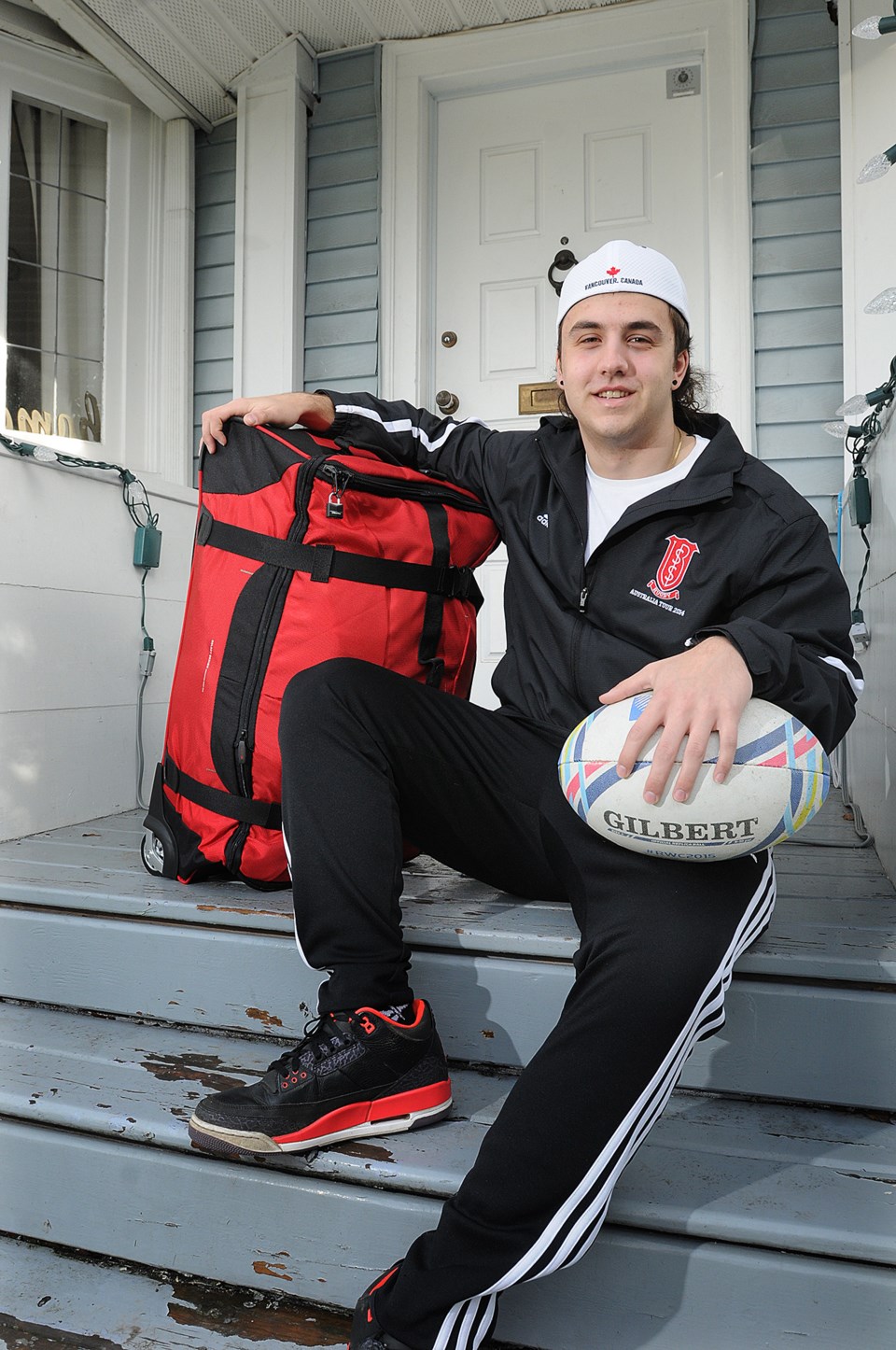Lord Byng secondary student Kosta Pappas was so excited about travelling to Australia to play rugby that he packed his bag a week in advance.
“I can’t wait,” he told the Courier just days before the trip.
Pappas, a 17-year-old Grey Ghost hooker, is in Sydney, Australia this week with 30 fellow senior Byng ruggers for a 17-day preseason tour that will include six matches against Aussie high school teams.
This is Lord Byng’s ninth overseas rugby tour in the past 27 years and while in the past the tour was both a bonding experience prior to the senior season and a way to expose the boys to different styles of play, it has increasingly become promotion for a sport that’s seen a decline in interest among �鶹��ýӳ��students in recent years.
“I know in some communities rugby programs are struggling because of the way neighbourhoods are changing,” said Byng co-coach and tour manager Ian MacPhee.
“These little tours are a bit of a carrot for our guys.”
While rugby has a long tradition at Lord Byng — it was the only public school to make the provincials last year (they placed 12th) — MacPhee said as someone who grew up and now teaches in Vancouver, he has noticed many team sports such as rugby are not as popular citywide as they once were.
Other longtime rugby enthusiasts agree, but some differ on possible reasons for the decline.
Jim Dixon, CEO of the British Columbia Rugby Union, said B.C. still has a thriving rugby culture.
“What you’ve typically found in the past is traditionally there was a very high number of clubs in the Lower Mainland, especially in Vancouver, and now what you will find is clubs are tending to grow within centralized regions of the city,” he said.
There are now major clubs with many teams at each level instead of small clubs spread out throughout the city, which has affected high school rugby.
“You’ve gone from having sort of a local connection … to a club for a school, to now where it is sort of hubbed,” he said.
The British Columbia Rugby Union wants to reinvigorate rugby within more schools, Dixon said.
He attributed the decline of rugby in schools to the many competing activities for kids.
Harp Sohi, the �鶹��ýӳ��School Board’s athletic director, said for the last few decades rugby has been primarily a West Side sport.
This fits with Pappas’ perception of his sport as popular in his neighbourhood.
“Lots of my friends come out and watch, and then they want to join too,” he said.
Paul Hughes, East Vancouver’s Sir Charles Tupper secondary athletic director, said Tupper has Grade 8, 10 and senior rugby teams this year, but did not run a Grade 9 team due to lack of students.
Doug Sturrock coached rugby at Magee secondary school, in South Vancouver, for 33 years until he retired in 2004.
He said the sport used to be popular across the city.
Prior to 1989 principals were allowed to hire teachers with the school’s coaching needs in mind.
Since that time it has been more of a struggle to find coaches for most high school sports, including rugby, he said.
“It doesn’t matter what sport it is, if you have a teacher in the school who’ll coach that sport, you are still going to attract a number of students to that sport,” he said.
Sturrock said in his time at Magee there were four rugby teams for grades 8 through 12 — Magee now runs a Grade 9 team and a senior team.
There used to be four teams at both Killarney and �鶹��ýӳ��Technical secondary as well, both no longer run rugby programs.
For Pappas, the decline of his sport in parts of the city isn’t on his radar. He is just happy to play.
Now in his fifth season playing at Byng, Pappas said rugby is his favourite because it is different than any other sport he has ever played.
“It is a brotherhood,” he said.
Follow MacPhee’s blog of the Byng tour at .



